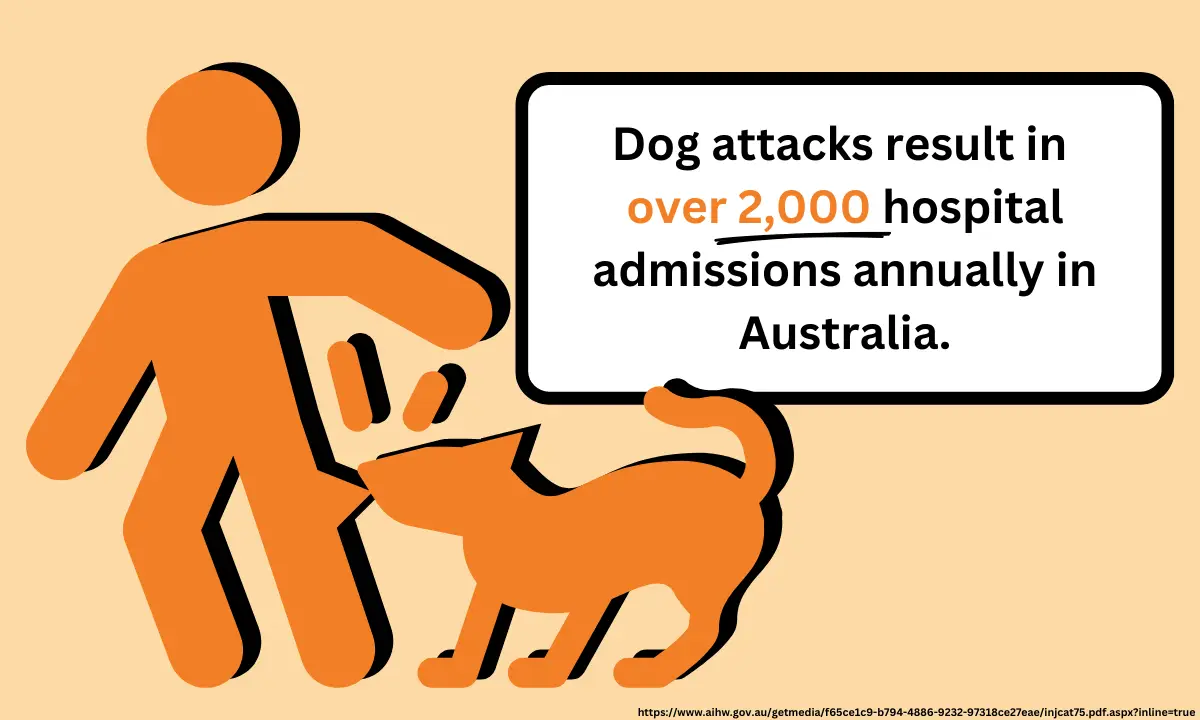Workplace injuries can happen to anyone, no matter what type of job you have. From construction sites to office environments, the risk of injury is always present. If you’ve suffered a work-related injury, it’s important to know which injuries might qualify for workers’ compensation. Based on years of experience, I’ve seen the same types of claims come up time and time again. In this blog, I’ll walk you through some of the most common workplace injuries that qualify for workers’ comp in Australia and give you a clear idea of what steps to take if you find yourself in this situation.

Slips, Trips, and Falls
This one probably won’t come as a surprise. Whether you’re in a busy office or on a construction site, slips and trips happen all the time. I’ve seen people who were simply walking down a hallway or heading to their car, only to end up with a nasty injury from a wet floor or an uneven surface. If you have had a slip and fall injury, on top of any workers compensation claim that you may be entitled too, you may also be entitled to make a public liability claim.
Read more about slip and fall public liability claims here.
What makes these personal injury claims particularly tricky is that the injuries can range from minor bumps to more serious ones like broken bones or even head injuries. If you’ve been in a similar situation, you’ll want to report it straight away and get checked by a doctor, no matter how minor it seems.
Even if the injury doesn’t feel too bad at first, I’ve seen claims where the pain or complications start to show up later, sometimes hours or even days after the accident. It’s easy to brush off a fall, thinking you’ll recover quickly, but reporting the incident immediately protects your right to claim workers’ compensation down the line.
Repetitive Strain Injuries (RSI)
RSIs can be a bit of a slow burn. I’ve met people who thought that the ache in their wrist or shoulder would eventually go away, only to find out months later that they had a more serious problem on their hands (sometimes literally, like in the case of carpal tunnel syndrome).
The thing with RSIs is that they creep up on you, especially if your job involves repetitive tasks like typing or lifting. I’ve seen quite a few workers in admin roles and trades alike deal with this, and in most cases, it’s crucial to catch it early. If it sounds familiar, make sure you talk to your doctor and let your employer know sooner rather than later.
Manual Handling Injuries
If you’ve ever lifted something heavy at work and felt that sharp twinge in your back, you’re not alone. Poor lifting techniques or just plain heavy objects can lead to all sorts of problems, like muscle strains and back injuries. Over the years, I’ve had several clients from construction, warehousing, and even retail who have struggled with these issues.
One of the best pieces of advice I can give is to report the injury to your employer and a treating doctor right away. This will increase the chances of the insurer admittinged liability because doctors need to write it down in your medical file. Separate to that, in my experience, these injuries don’t always show up immediately. You might think you’re fine, only to feel the pain the next day. Don’t wait it out—get it checked.
Click here to read more about back injury compensation claims.

Burns and Scalds
Burns and scalds are more common than you might think, especially in certain industries like hospitality or construction. I’ve seen workers dealing with everything from mild burns to severe scalds from hot liquids or machinery. It’s one of those injuries that can range from uncomfortable to life-altering, depending on the severity.
The good news is, workers’ compensation usually covers the cost of medical treatment and recovery time for burns. But again, the key is reporting it early and keeping detailed records of the incident.
Looking for more information about burn injury entitlements? Click here.
Psychological Injuries
This might surprise some people, but psychological injuries, like anxiety and Post Traumatic Stress Disorder (PTSD) from workplace stress or bullying, are very real and just as serious as physical injuries. I’ve had quite a few psychological injury claims where people were hesitant to bring up their mental health issues at work because they didn’t think they “counted” as a work injury.
If you’ve been affected by work-related stress, harassment, or bullying, know that you’re entitled to the same workers’ comp benefits as someone who’s physically injured. The key is getting proper medical documentation and being open with your employer about what’s going on.
Crush Injuries
Crush injuries are one of the more severe types of injuries I’ve come across, and they tend to happen in industries like construction, manufacturing, or mining. These injuries happen when someone is caught between heavy machinery or struck by equipment, and they can lead to broken bones, internal injuries, complex regional pain syndrome (CRPS) or worse.
What stands out in these cases is how serious the long-term effects can be, both physically and emotionally. Workers’ compensation plays a huge role in making sure the injured worker gets proper treatment and rehabilitation.

Making a Workers' Compensation Claim
If you’ve found yourself dealing with any of these injuries at work, it’s important to know what to do next. Here’s a quick rundown on the steps you’ll want to take:
It’s really important to notify your employer about any workplace injury right away, even if the injury seems small at first. Why? Because having a formal record of the incident can make all the difference if the injury worsens over time. Sometimes, what seems like a minor ache or a small slip can turn into something more serious later on. If you don’t report it early, there may be no official documentation of the incident, which could complicate your workers’ compensation claim.
By reporting the injury immediately, you ensure that your employer is aware of the situation and that it’s recorded. Your employer has an obligation to notify their workers compensation insurer. This creates a paper trail that will be useful when you file your claim, helping to avoid any potential disputes about when or how the injury occurred.
It’s important to seek medical attention as soon as possible after a workplace injury, not only for your health but also to support your workers’ compensation claim. When you visit the doctor, make sure to clearly explain that your injury is related to your job. This is crucial because the doctor needs to document your injury as work-related in their medical report, which will be a key piece of evidence in your claim.
Your doctor will likely provide you with a medical certificate, referred to as a Certificate of Capacity/Certificate of Fitness. This certificate includes important details such as the type of injury, how it occurred, the expected recovery time, and any work restrictions you might have during recovery. You’ll need to submit this medical certificate along with your workers’ compensation claim form or notification of injury form that your employer may provide to their insurer, to prove that the injury is legitimate and work-related. Without this documentation, it could be more difficult to get your claim approved.
Even if you think your workers compensation claim is straightforward and will be admitted, you are entitled to claim lump sum on top of your wages and medical expenses entitlement. Unlike wages and medical expenses, lump sum needs to be claimed by you. This is where our advice and representation can be invaluable for you. Plus, it doesn’t cost you anything at all as our workers compensation lawyers are approved by the Independent Review office (IRO), a state government department.
Once you or your employer has the claim or notification form and your medical certificate (which outlines the nature of your injury and its connection to your work), it’s time for you or your employer to email it to your employer’s workers compensation insurer.
Our workers compensation lawyers can help simplify this process by guiding you through each step, ensuring that all your documents are properly completed and submitted on time. They can also help you avoid common mistakes, like missing important deadlines or leaving out key information, which could delay or negatively affect your claim. Essentially, having legal support ensures that your case is as strong as possible, giving you the best chance of a successful outcome. It’s important to note you will not pay our workers compensation lawyers as our costs are covered by the Independent Review Office (IRO).
Once you’ve filed a workers’ compensation claim, it’s important to stay actively involved in the process. This means regularly checking in with your employer or their insurer to ensure everything is moving forward. Keep track of any correspondence, medical reports, and payments you receive, as this will help you stay organised and catch any potential issues early.
If your claim encounters delays or, worse, gets denied, it’s critical not to give up. Claims can be denied for a variety of reasons, such as missing paperwork or insufficient medical evidence. If this happens, you have options. You can request a review of the decision or lodge an appeal, but this process can be complex and time-sensitive. This is where our workers compensation lawyers advice and representation can be invaluable. A workers’ compensation lawyer can step in to review your claim, help gather any missing evidence, and act on your behalf to ensure you have the best chance of success.
Having a lawyer representing you means you don’t have to navigate the red tape on your own, giving you peace of mind that your claim is being handled by specialised lawyers with decades of experience in overcoming these types of obstacles.
Workers' Compensation and TPD Claims: Can You Have Both?
In some cases, a workplace injury might not just qualify you for workers’ compensation—it could also leave you eligible for a Total and Permanent Disability (TPD) claim. These are two separate claims that can both provide vital financial support when you’re dealing with an injury, that is preventing you from working in positions that you used to, or are qualified to do.
Workers’ compensation helps cover your medical costs and lost wages while you recover. But what happens if your injury prevents you from returning to work that you used to do or are qualified to do.? That’s where TPD comes in. If your injury leaves you unable to work in your usual job, you may be entitled to a TPD payout through your superannuation. Don’t worry, most people don’t know they even had TPD Insurance within their superannuation fund(s).
I’ve seen many TPD claims where clients didn’t even realise they could pursue both a workers’ compensation claim and a TPD claim at the same time. Navigating both claims can be tricky, but with the right guidance, you can ensure you’re getting the full benefits you deserve.
If you’re dealing with an injury that’s preventing you from working, contact us to do a free TPD eligibility claim check. If you are eligible, our TPD lawyers can act on your behalf on a No Win No fee basis.
What If Your Workers' Compensation Claim Is Denied?
This is a question I hear more than you’d think. If your claim gets denied, don’t panic. We can challenge it on your behalf. It’s not as daunting as it seems.

If you ever find yourself in a situation like this, just know you’re not alone. Workplace injuries happen, and workers’ compensation exists to help you through it. If you’re feeling unsure about what to do next, feel free to reach out—we’ve helped plenty of people get the support they deserve, and we’d be happy to do the same for you.
Stay safe out there, and don’t hesitate to get the help you need if something does go wrong.
Want More Information on Workers Compensation Claims?
Frequently Asked Questions (FAQ)
Yes, in many cases, you can claim both workers’ compensation and Total and Permanent Disability (TPD) for the same injury.. It’s important to seek legal advice to ensure both claims are handled properly.
In Australia, the time limit for filing a workers’ compensation claim varies by state. Its 6 months for NSW and 12 months for WA, but it’s generally recommended to report your injury and file your claim as soon as possible, even if out of time, as it can still be accepted – depending on the reasons why it was filed outside of the time limit.
To support your workers’ compensation claim, you’ll need to at least provide a completed medical certificate from your treating doctor and the notification or claim form you or your employer completed. Your employer’s workers compensation insurer can request the rest directly.
If your claim is denied, you have the right to request a review of the decision or challenge it to have it determined by the Personal Injury Commission. This process can involve gathering additional evidence to support your case. Seeking legal advice is highly recommended to improve your chances and costs you nothing as our workers compensation lawyers are IRO approved.

Why Choose Withstand Lawyers for Your Workers' Compensation Claim?
When it comes to handling workers’ compensation or TPD claims, having the right workers compensation or TPD lawyers makes all the difference. At Withstand Lawyers, we’ve spent decades helping people through the complexities of these claims, making sure they get the best possible outcome. Our experience means we know the ins and outs and we’re here to guide you through every step of the process.
We understand that dealing with an injury is stressful enough without having to worry about legal hurdles. That’s why we focus on making the process as smooth and straightforward as possible. From gathering the right evidence to negotiating with insurance companies, we’re dedicated to fighting for your rights and securing the compensation you deserve.
If you’re facing a workplace injury or need help with a TPD claim, don’t go it alone. Contact us at Withstand Lawyers and let us take the burden off your shoulders.

Issa Rabaya
• Bachelor of Laws
• Graduate Diploma in Legal Practice
• Approved Legal Service Provider to the Independent Review Office
• Member of the Law Society




